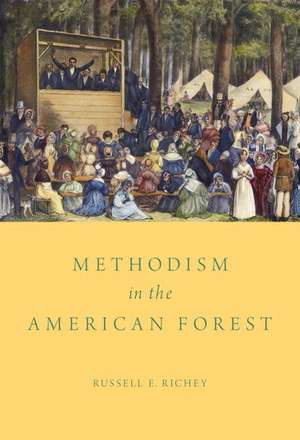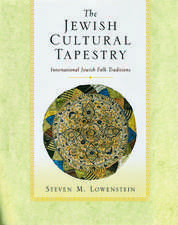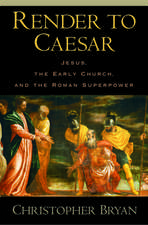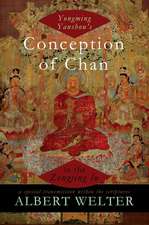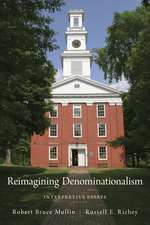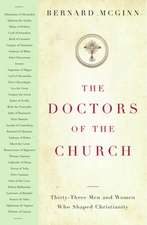Methodism in the American Forest
Autor Russell E. Richeyen Limba Engleză Hardback – 16 apr 2015
Preț: 411.95 lei
Preț vechi: 569.35 lei
-28% Nou
Puncte Express: 618
Preț estimativ în valută:
78.84€ • 85.60$ • 66.22£
78.84€ • 85.60$ • 66.22£
Carte tipărită la comandă
Livrare economică 12-18 aprilie
Preluare comenzi: 021 569.72.76
Specificații
ISBN-13: 9780199359622
ISBN-10: 0199359628
Pagini: 240
Dimensiuni: 155 x 236 x 25 mm
Greutate: 0.43 kg
Editura: Oxford University Press
Colecția OUP USA
Locul publicării:New York, United States
ISBN-10: 0199359628
Pagini: 240
Dimensiuni: 155 x 236 x 25 mm
Greutate: 0.43 kg
Editura: Oxford University Press
Colecția OUP USA
Locul publicării:New York, United States
Recenzii
Richeys book is a thoroughly absorbing and welcome exploration of a subject which, as he himself acknowledges, has been comparatively under-recorded or analysed since Charles A. Johnsons The Frontier Camp Meeting: Religions Harvest Time in 1955.
Richey's book is a thoroughly absorbing and welcome exploration of a subject which, as he himself acknowledges, has been comparatively under-recorded or analysed
Reading through the lens of the sylvan images that inspired mainstream American Methodists in the eighteenth and nineteenth centuries, eminent Methodist historian Russell Richey reexamines Methodism's missional impulse and brings into focus its practiced theology and ecclesiology. This robust and engaging study speaks principally to Methodism's past, but it also has much to say about and to American Methodism in the present day.
Russell Richey effectively employs a unique and engaging approach to Methodist history. Beginning with John Wesley and early British Methodism, he leads us to recognize the manner in which American Methodism grew and flourished in wilderness, forest, and shady grove. With generous quotes from primary sources and insightful interpretation we learn about American Methodism's mission and ministry as it moved across the continent,becoming an influential force in American life.
Russell Richey has done as much as anyone to shape how we think about early American Methodism. In this call to reconsider the connection between nature and faith, Richey expands the scope of his work. American Methodists did not simply tolerate 'the woods,' they engaged with the forest and incorporated it into their ministry. Nowhere was this more evident than at camp meetings, as Richey so persuasively argues.
Richey's book is a thoroughly absorbing and welcome exploration of a subject which, as he himself acknowledges, has been comparatively under-recorded or analysed
Reading through the lens of the sylvan images that inspired mainstream American Methodists in the eighteenth and nineteenth centuries, eminent Methodist historian Russell Richey reexamines Methodism's missional impulse and brings into focus its practiced theology and ecclesiology. This robust and engaging study speaks principally to Methodism's past, but it also has much to say about and to American Methodism in the present day.
Russell Richey effectively employs a unique and engaging approach to Methodist history. Beginning with John Wesley and early British Methodism, he leads us to recognize the manner in which American Methodism grew and flourished in wilderness, forest, and shady grove. With generous quotes from primary sources and insightful interpretation we learn about American Methodism's mission and ministry as it moved across the continent,becoming an influential force in American life.
Russell Richey has done as much as anyone to shape how we think about early American Methodism. In this call to reconsider the connection between nature and faith, Richey expands the scope of his work. American Methodists did not simply tolerate 'the woods,' they engaged with the forest and incorporated it into their ministry. Nowhere was this more evident than at camp meetings, as Richey so persuasively argues.
Notă biografică
Russell E. Richey, author or editor of twenty books and an array of articles on American Methodism, held professorial and administrative posts successively at Drew, Duke, and Emory universities. He is Dean Emeritus of Candler School of Theology and William R. Cannon Distinguished Professor of Church History Emeritus. He now serves as Visiting Professor at Duke Divinity School.
